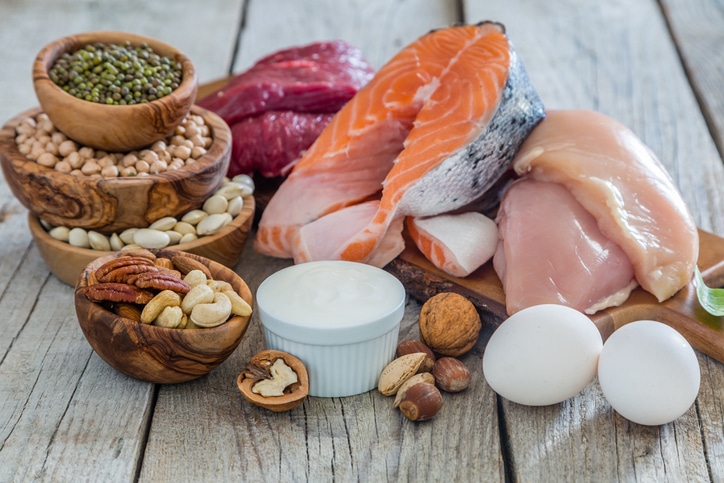Nutrition plays a significant role in maintaining healthy hair. The nutrients you consume can affect the structure, growth, and overall health of your hair. Here are some key nutrients and their roles in promoting hair health:
Protein
Hair is primarily made up of a protein called keratin, so consuming adequate protein is essential for hair growth and strength. Good sources of protein include lean meats, poultry, fish, eggs, dairy products, legumes, nuts, and seeds.
Iron
Iron is necessary for delivering oxygen to hair follicles. Iron deficiency (anemia) can contribute to hair loss or thinning. Include iron-rich foods in your diet, such as lean meats, seafood, legumes, dark leafy greens, and fortified cereals.
Contact A BodyLogicMD BHRT Expert Today
Omega-3 fatty acids
These healthy fats are important for scalp health and can help nourish hair follicles. Sources of omega-3 fatty acids include fatty fish (salmon, mackerel, sardines), flaxseeds, chia seeds, walnuts, and soybeans.
Vitamins A and C
Vitamin A helps produce sebum, which moisturizes the scalp and keeps hair healthy. Vitamin C aids in the production of collagen, which is crucial for hair structure. Include foods rich in these vitamins, such as carrots, sweet potatoes, spinach, broccoli, citrus fruits, strawberries, and bell peppers.
Biotin
Biotin, also known as vitamin B7, is involved in the production of keratin. It is often associated with hair and nail health. Good dietary sources of biotin include eggs, nuts, seeds, salmon, sweet potatoes, and avocados.
Zinc
Zinc plays a role in hair tissue growth and repair. Insufficient zinc levels have been linked to hair loss. Foods rich in zinc include oysters, beef, poultry, pumpkin seeds, and lentils.
Vitamin E
Vitamin E is an antioxidant that helps protect hair follicles from oxidative stress. Good sources of vitamin E include almonds, sunflower seeds, spinach, and avocados.
Water
Staying hydrated is essential for overall hair health. Water helps keep the scalp and hair hydrated, promoting moisture and preventing dryness.
It’s important to maintain a well-balanced diet that includes a variety of nutrient-dense foods to support optimal hair health. While nutrition is essential, it’s worth noting that hair loss or hair health issues can also be influenced by various factors like genetics, hormonal imbalances, medications, and underlying health conditions.
If you have concerns about your hair health, it’s advisable to consult with a healthcare professional from BodyLogicMD or a registered dietitian who can provide personalized guidance based on your specific needs and circumstances.

